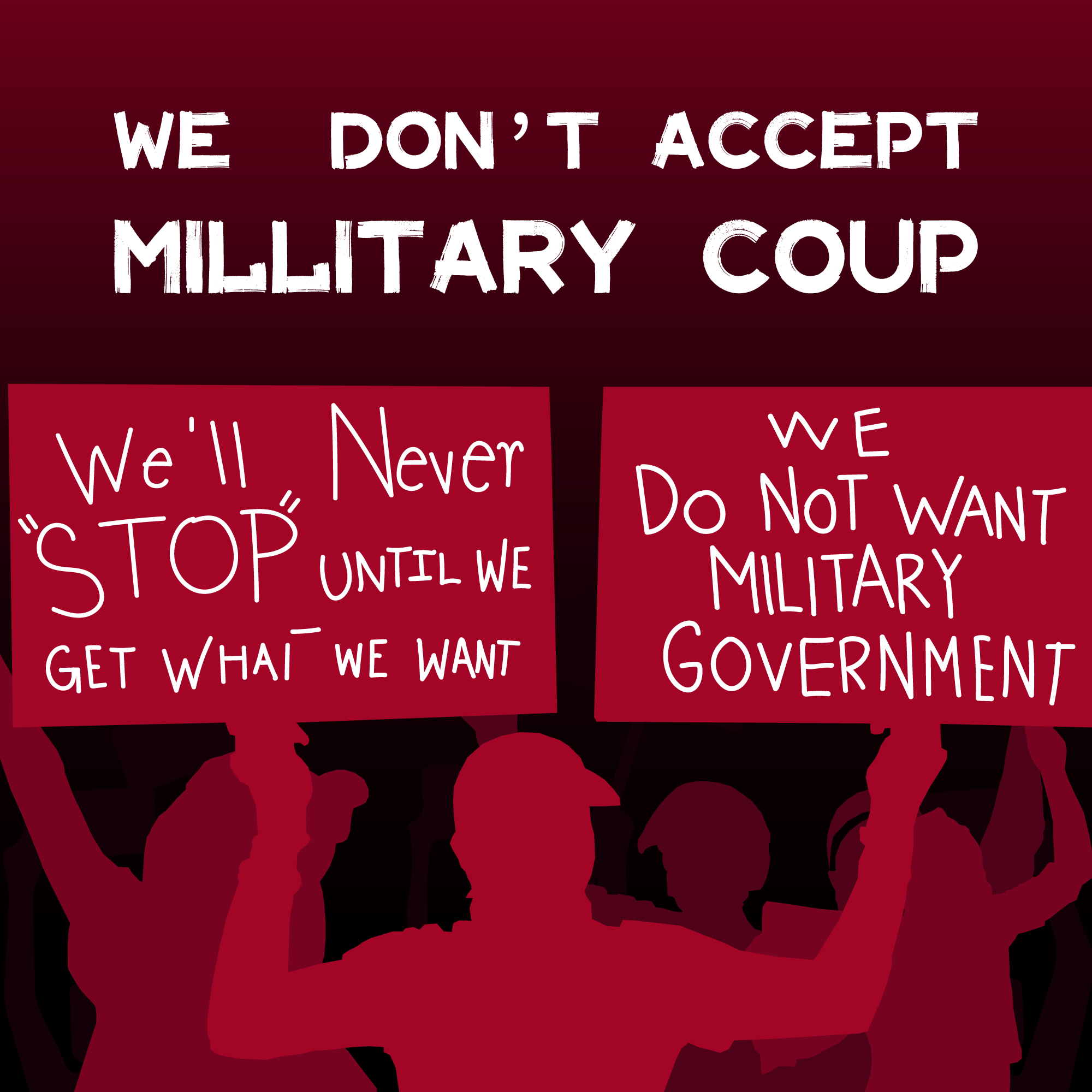Mass Protests Emerge in Myanmar

On February 1, the Myanmar military seized control of the country after democratic leader Aung San Suu Kyi won the general election. Myanmar citizens responded with mass protests and boycotts.
Myanmar was under military control for almost 50 years until its transformation into a democratic government in 2011. Suu Kyi and the National League for Democracy (NLD) party led the country since 2015 and were about to start their second term after Suu Kyi was reelected. However, the citizens of Myanmar who supported the military began protesting that the voting system was fraudulent. Soon after, military commander-in-chief Min Aung Hlain and his troops threw a coup d’etat and seized control of the country.
Since then, there have been violent protests and clashes between protesters and the police. At least 38 people were killed in one of the worst clashes between protestors and police. There have also been several videos of police shooting and killing unarmed protestors. In Mandalay, one protestor told BBC that “around 10 am or 10:30, police and soldiers came to that area and then they started to shoot at civilians. They didn’t give any warning to the civilians.” The protestor continued by explaining how the police “used rubber bullets but they also used live bullets to kill civilians in a violent way.”
Despite the protests in the streets, Myanmar troops have also taken control of hospitals and universities. State-run newspaper Global New Light of Myanmar explained how troops are “maintaining” schools and hospitals “for the benefit of the people.” Many health officials and organizations have spoken out about troops taking control of hospitals. Sandra Mon of the Center for Public Health and Human Rights at Johns Hopkins Bloomberg School of Public Health told CNN that by sieging hospitals that contained many injured civilians, it could be “interpreted as a direct attempt to impede access to care for civilians.” Mon continued by saying that this was also a “threat to attending medics to warn them against further treating injured protestors.”
Myanmar’s ambassador to the United Nations, Kyaw Moe Tun, has repeatedly asked for help from the international community and requested for the UN to set up sanctuaries. He told CNBC’s “Squawk Box Asia” that Myanmar citizens “keep asking the international community to impose targeted sanctions on military regime” because sanctions are “useful.”
“We want to prevent any kind of civil war in Myanmar, so that is why we keep asking (for) the help from the international community,” Tun says. He insists that “military coup must fail” and “democracy must prevail in Myanmar.”
Vivian is a former staff writer for The Talon. She’s very interested in psychology and is hoping to major in it and become a clinical psychologist one day. When she’s not busy, she loves to read, embroider, and watch Korean dramas.
Kevin is a former Graphics Editor for the Talon. He enjoys graphic design, web developing, cooking, and playing video games.
